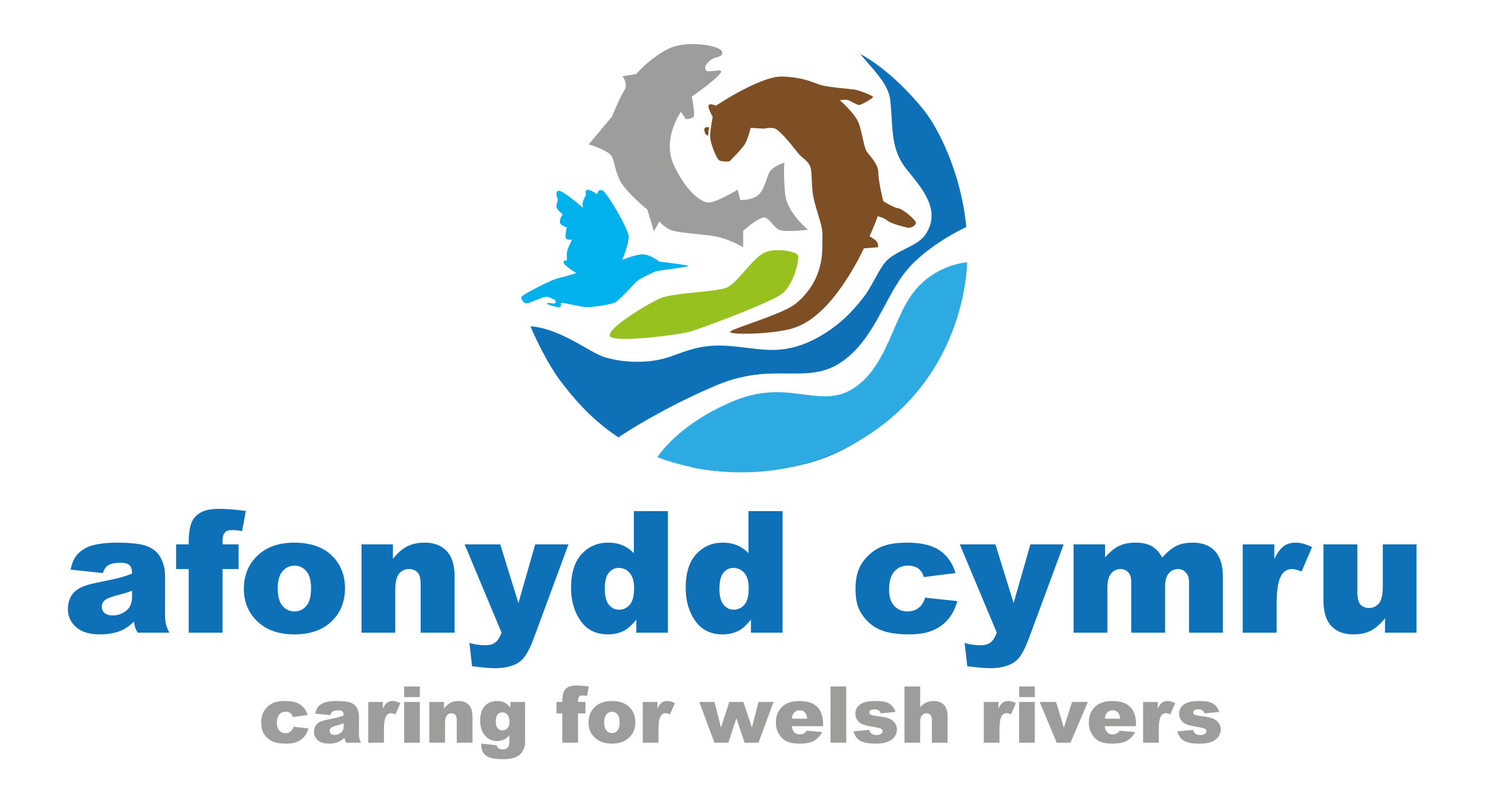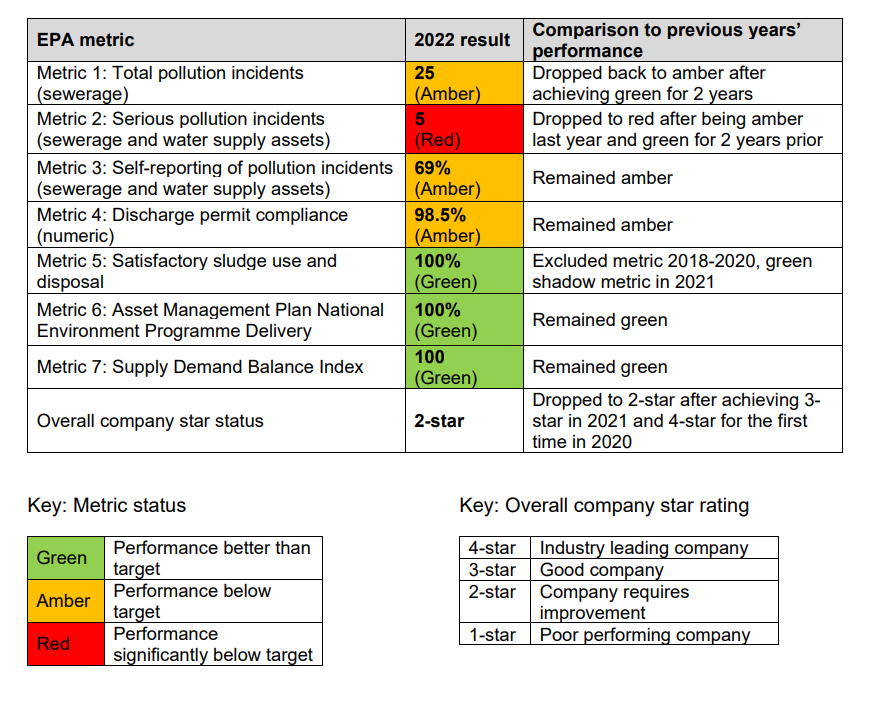Natural Resources Wales summary table for Welsh Water’s environmental performance in 2022.
Wednesday 12th July, 2023
Natural Resources Wales today published their 2022 environmental performance report for the two major Welsh water companies, Dwr Cymru Welsh Water and Hafren Dyfrdwy. In what will no doubt be a disappointment to the company as well as those with an interest in rivers, Welsh Water has been downgraded from three to two stars, the second downgrade in succession.
Hafren Dyfrdwy is not subject to the same star-type rating because of its relatively small size. The number of pollution incidents it was responsible for in 2022 halved to four and none of these were deemed “serious.” The regulator, however, called for Hafren Dyfrdwy to improve its self-reporting.
It has not been a good past few months for Welsh Water and its environmental credentials. The water company issued its own annual report in June, which admitted its poor environmental performance. Of the four commitments set by Ofwat for the current investment period, all were missed by Welsh Water. These included the percentage of treatment works complying with discharge permits, the number of pollution incidents, leakage and per capita water consumption. Surprisingly, this report is no longer to be found on Welsh Water’s website.
It has been a bad few months for Welsh Water and its environmental credentials
Earlier in May, Welsh Water announced it was offering a £10 rebate to households following miscalculation of their customers’ water consumption and the amount that leaks from its networks, something that is now being investigated by Ofwat.
The downgrade to two stars is predominately due to an increase in serious pollution incidents from three in 2021 to five in 2022, all on the wastewater side of the business. Perhaps more importantly, the report states that Welsh Water missed four out of the seven targets set by the regulator, showing that environmental performance across a wider range of measures is poor and declining.
Welsh Water, understandably, points to its record spending on environmental improvements coming in the next investment period, especially that to resolve the most environmentally damaging sewer overflows and discharges from its treatment works.
The company’s downgrade to two stars is predominately due to an increase in serious pollution incidents from three in 2021 to five in 2022
In 2009 the then CEO of Welsh Water Nigel Annett sent an open letter to Professor Martin Cave, who had undertaken a review of the regulation and financing of the water industry on behalf of the Westminster and Welsh Governments.
In the letter the Welsh Water chief stated: “A key feature of the water industry is that it is very measurable ““ customer service, water quality, environmental performance, bills, etc – so customers and other stakeholders can see who is doing a ‘good, bad or middling’ job. This fact would allow public policy makers and others to judge which model worked best, and indeed incentivise participants to out-perform.”
We would agree wholeheartedly with this statement. The question now is whether the clear measures of performance currently in place are enough to incentivise Welsh Water to make the significant changes and to deliver the improvements that are needed.

